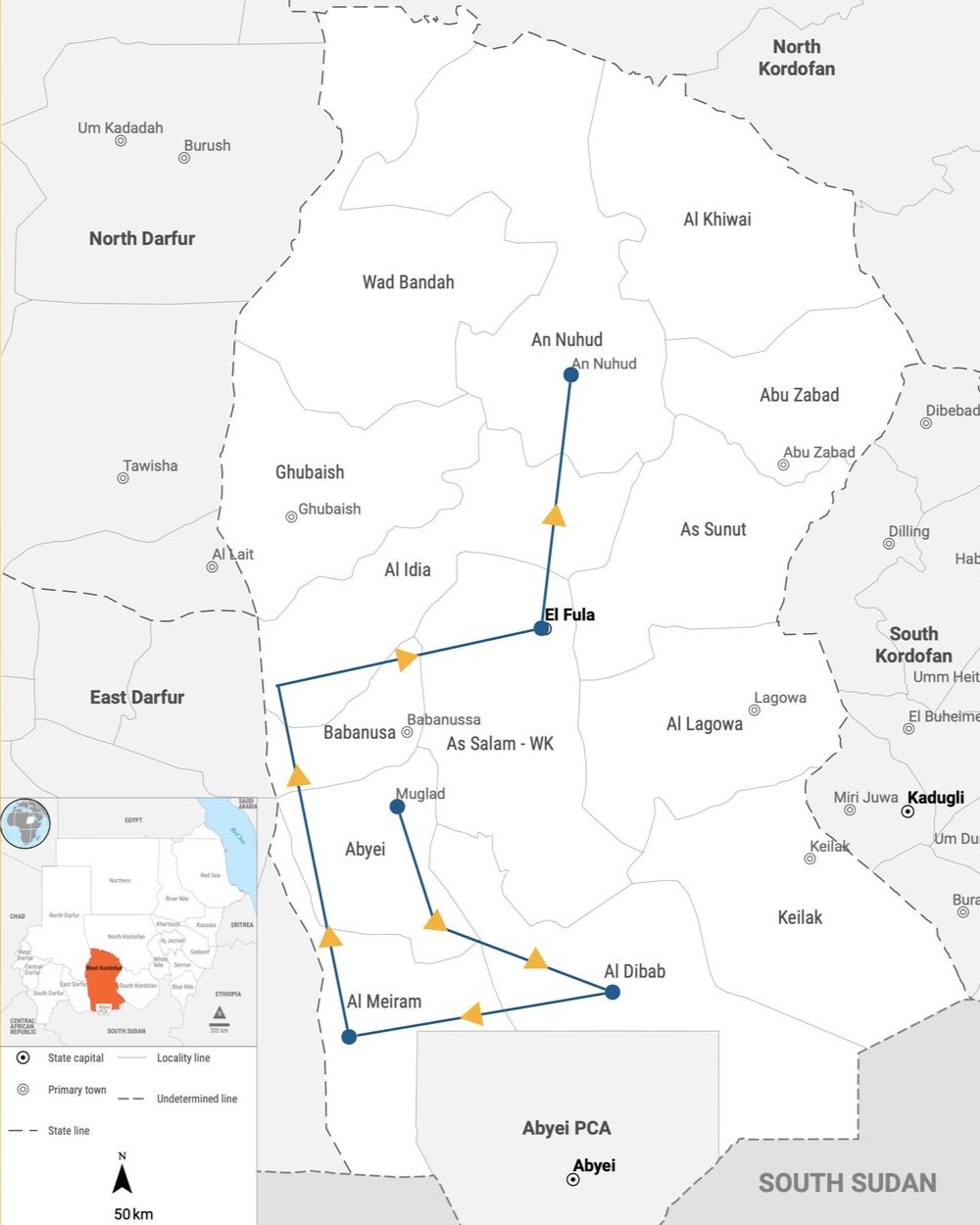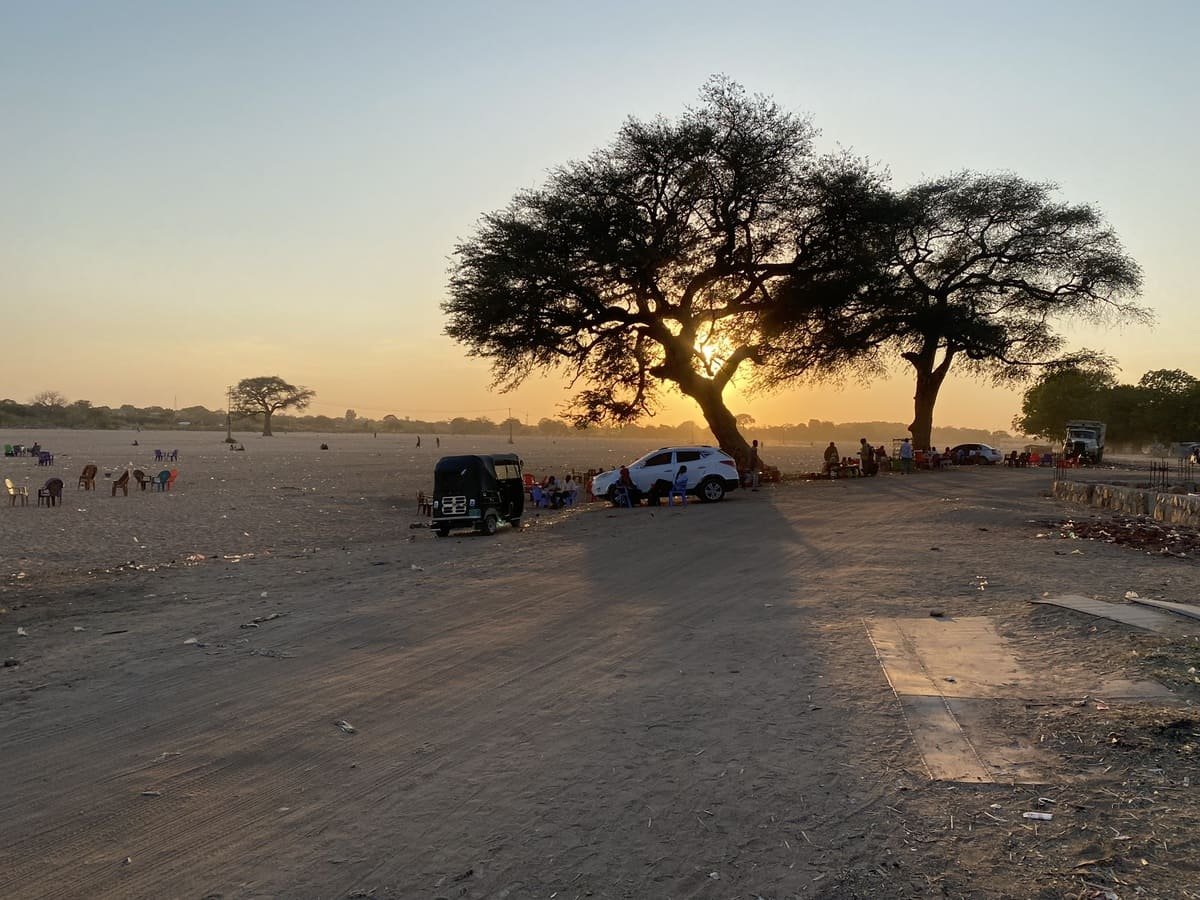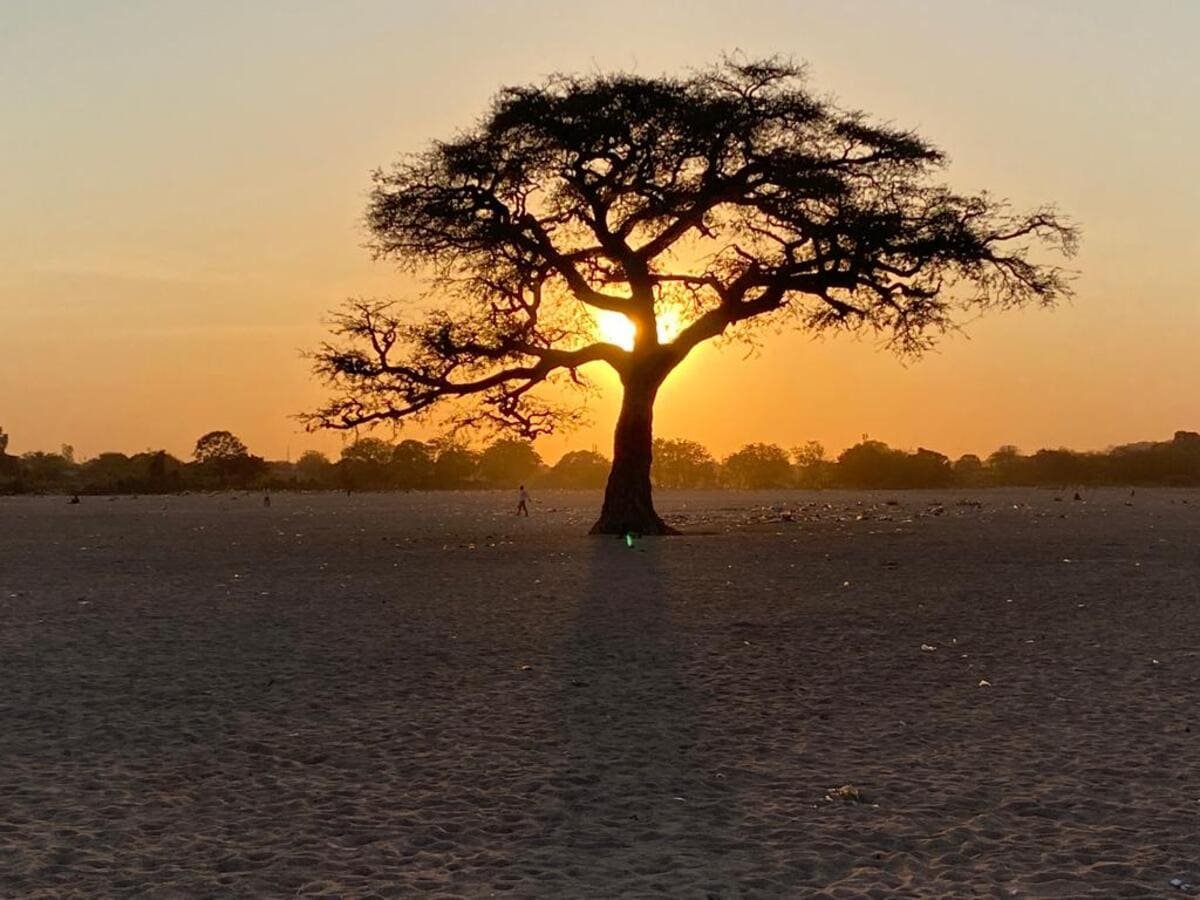Current Programmes
South Darfur
Background
Sudan has long been at the core of Concordis’ peacebuilding programmes, with previous activities in Sudan and Southern/South Sudan dating back to 2004. We have also been active in Abyei since 2014, through our work promoting social cohesion in the borderlands.
We were therefore delighted to receive an invitation to continue our work alongside Sudanese communities located in South Darfur. We always work by invitation, helping to support local people in implementing long-term and sustainable solutions to disputes and, in this case, the invitation came from Darfuri herders who were familiar with our work from spending the dry season over the border in Central African Republic.
For all peacebuilding programmes, it is important to start well by building strong networks and ensuring staff are adequately prepared for the challenging task at hand. Concordis’ South Darfur Programme Manager and his team did just that, building key relationships with local government officials and community leaders.
As an organisation, we value working with national staff as much as possible, as well as working alongside local peacebuilders. No one knows the background and context better than them, and they will be the ones to manage future conflicts, long after Concordis is gone.
National and international staff have worked together, alongside local civil society organisation, ‘Malam Darfur Peace and Development’, to design a programme that will respond to South Darfur’s complex needs. The team received training in security and safeguarding; security for their own protection, safeguarding to ensure the protection of those with whom we work, particularly those most vulnerable.
Consulting South Darfur & our plan for peacebuilding in the region
The benefits of investing time and energy in building relationships with key local actors, before beginning programme activities, cannot be overemphasised, and this really paid off.
For example, it was important for us to consult people in Um Dafok, on the border with CAR, since this is a strategically significant border crossing. It’s also a politically sensitive area, and the authorities are generally unwilling to permit international NGOs to visit. Having invested in key relationships with the authorities, and having earned their trust, they were satisfied that Concordis is not a threat to security, but working effectively for peace, and they gave rare permission to work in this area.
In total, the team consulted over 3,500 people from February to March this year, from all 16 of South Darfur’s localities. This was a huge undertaking and credit goes to the programme team for their efforts in completing such an enormous consultation in a short timeframe.
Consultations are a core aspect of our peacebuilding programmes. They give us the evidence-base we need to design programs that will be relevant and effective, locally owned and accepted, in each unique and fast-changing context. Consultations help us to measure our impact against a baseline, and to remain accountable to those we seek to serve.
Significantly, consultations also help us to understand what peacebuilding work is already going on, including local mechanisms to manage conflicts arising, and to find out what is working and what is less trusted. This is vital, to ensure we’re not reinventing the wheel or duplicating the efforts of others.
In our consultations, it is important to hear the needs, fears and aspirations of a wider cross-section of South Darfuri society, listening to women and men from different ethnic groups, with different livelihoods, of different ages, and from all across the state, both rural and urban.
We also prioritise maintaining a close relationship with our donors, in this case, the European Union, to enable flexibility in our programme. This permits us to adapt our plans to respond to the needs expressed by those most affected by the conflict. It also permits us to adapt to changes in the context.
This need to adapt was seen most dramatically on 15th April 2023, when war broke out in Sudan, between the Sudanese Armed Forces (SAF) and Rapid Support Forces (RSF), with intense fighting across Darfur, as well as in Khartoum.
Concordis and the outbreak of war in Sudan
The war has made it incredibly difficult and dangerous for people to move around, as intense fighting is taking place in residential neighbours. Nyala, the capital of South Darfur, is on a front line, with the RSF controlling one side and the SAF controlling the other.
Mercifully, our 16 Sudanese members of staff are all safe, but life for them has been very tough. Without disclosing names, one member of staff had his house destroyed by an artillery shell – he and his family were able to escape, but they’re now homeless and displaced. A high-velocity round passed through the staff accommodation one night, and a number of staff members found themselves too close to the active fighting and had to flee to stay with friends. Homes have been looted; friends and relatives have been killed or injured.
Concordis’ first priority, of course, has been to support our colleagues and their families as best we can, checking in with them, sending through money and phone credit, and showing them that they and their country are loved and not forgotten.
And, quietly, there have also been opportunities for ongoing peacebuilding. Concordis’ commitment to working with national staff and alongside local partners and peacebuilders is, we believe, effective and sustainable, and never more so than when crises (or pandemics) prevent international travel, or even travel between towns.
Our Concordis colleagues and staff of our local partner, Malam Darfur Peace and Development, already have extensive networks across South Darfur, including Peace Committees, Women Peace Ambassadors, traditional leaders and civic groups. We’ve been working with them, looking for ways to build resilience to conflict in localities across South Darfur, as well as in West Kordofan.
This included support for an initiative in which 80 traditional leaders in South Darfur signed a document, calling on communities to maintain peace throughout the state. And it’s included Concordis staff travelling from town to town throughout West Kordofan with Misseriya Paramount Chief Baba Moktar, as he’s used his influence to seek to inoculate West Kordofan from the violence that’s consuming its neighbours. There’s more on Concordis’ work in West Kordofan here.
The key message – their message – is to urge the protagonists on both sides that, whatever their issues with one another, they must not destroy their own communities. “This is your school, that educates your children; don’t burn it. This is your clinic, that treats your families; don’t destroy it. This is your market; where you buy your food; don’t loot it.”
And they’ve been telling civilians, “Whatever grievances you may have against one another, or against your neighbours, don’t use this war to get even; there are better ways to resolve your differences than fighting in this war. Don’t take sides.”
Concordis’ Sudanese staff mobilised quickly and volunteered to support this work – they themselves are from the region and are eager to do all they can to prevent the war from spreading or worsening in severity.
They do so knowing the risks – it’s extremely brave to take a stand against the war, to travel when others are understandably hiding in their homes, and to brave floods and difficult roads in the rainy season.
These initiatives clearly demonstrate that, in Sudan right now, there are proactive local peacebuilders seeking to stop the war in their communities, and they are being met with receptive and enthusiastic local audiences. Any opportunity to support or amplify their work must be pursued in these difficult times.







